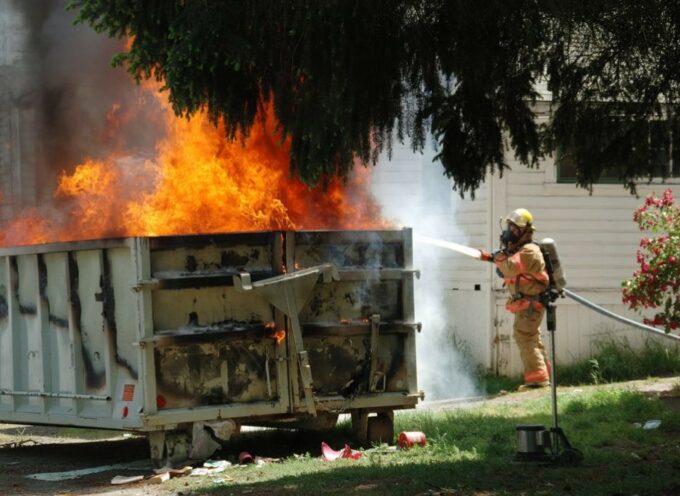Praise be to Allah…. Allah Most High has struck America in its most vulnerable spot, destroying its mighty buildings, praise be unto Him. Look at America—filled with terror from north to south, east to west—all praise be to Allah!
Thus began Osama bin Laden in his “Oath to America,” broadcast by al-Jazeera nearly a month after the 9/11 strikes that killed nearly 3,000 civilians, including more than 400 firefighters and law enforcement officers, and injured more than 6,000 others. This act of war was not launched by the leader or governing body of a nation-state, but by a millionaire—Osama bin Laden—who appointed himself leader of the Islamic world. It was waged with glee rather than regret, for the sake of furthering a religious and ideological agenda rather than correcting a specific injustice, and purposely aimed at unsuspecting civilians rather than armed combatants.
What is terrorism?
The 9/11 attacks are a quintessential example of terrorism. And, although a few sanctimonious left-leaning intellectuals and leaders blamed America and justified bin Laden’s attack, the vast majority of the world condemned the attacks as unjustified terrorism. But what is “terrorism”? Although the word is used regularly, and although we know an act of terror when we see it, it is best to define the concept. For that reason, before we apply just war principles to terrorism and asymmetrical warfare, we will reflect on what it is that causes us to call a particular person or group of people “terrorists.”
Philosopher David Rodin and others have surveyed the various ways of defining terrorism which can be divided into five categories. The first category defines terrorism in tactical and operational terms, focusing on the type of weapons used or on the mode of employment of those weapons. The second category focuses on teleology, on the driving motives or purposes, such as terrorizing, destabilizing, demoralizing, or coercing. Third, agent-focused definitions focus on the status of terrorists as non-state actors or as illegitimate authorities. Fourth, object-focused definitions focus on the target of terrorism, the deliberate or reckless use of force against noncombatants
The fifth model, and the one I prefer, is the family-resemblance approach which foregoes tight definitions in favor of more empirical and contextual treatments of specific manifestations of terrorism. As A. J. Coates argues, the desire to have a tight definition is too narrow in that it focuses on one feature to the exclusion of others. Terrorism in general usage means more than any one of the four previous categories. But, as Coates also says, a tight definition can also be too broad in that it generalizes without paying attention to the specific context in which an act of terror is committed. Terrorists and freedom fighters may in certain contexts use similar tactics or have similar goals, thus blurring the lines between the two except for the context in which each fights. Thus, instead of locking in on a tight definition, Coates argues, we recognize terrorism’s complex and multi-faceted nature by studying it empirically and contextually, showing how the various aspects of terrorism relate to each other, impact each other, and come together as a whole.
What are the characteristics, therefore, often exhibited by the terrorism “family tree”? In terms of agency, acts of terror can be carried out by state or non-state actors, but in our contemporary era are usually carried out by non-state actors. Additionally, they do not enjoy widespread support as a political group and thus must resort to secretive acts of terror. In regard to ends, acts of terror are usually waged on behalf of a religion or ideology. It makes an enemy out of whole categories of people. The hostility is generalized and indiscriminate. In regard to means, acts of terror involve the deliberate killing of noncombatants or harming of property to create a spirit of fear in order to gain leverage for attaining various goals. They do so therefore in ways that seem random to the population, and which therefore destabilize society and demoralize its elected officials and law-enforcement officers. As regards disposition, terrorists exhibit a cold, calculated, and impersonal hatred of entire categories of people.
Terrorism, therefore, is a complex and multi-faceted phenomenon, iterations of which exhibit criss-crossing and overlapping characteristics. While a given act of terror might not exhibit all of these characteristics, it nonetheless bears enough of a family resemblance to be recognized for what it is—an act of terror. Having sketched a portrait of terrorism, we must now turn to an assessment of terrorism in light of just war principles.
Is terrorism a just or unjust form of warfare?
Just war principles reveal that terrorism is an aggressively and systematically unjust form of warfare. Terrorists regularly fail to respect a number of the criteria for deciding whether or not to go to war (jus ad bellum): just cause, legitimate authority, right intent, right spirit, and probability of success:
- Terrorists fail the just cause principle because they do not wage war primarily to correct specific acts of injustice but instead to advance religious or ideological ends. Their goal is to eliminate, or at least force into submission, their religious or ideological opponents.
- Terrorists generally do not possess legitimate authority. They are not the political leaders or civil bodies ultimately responsible for maintaining order and providing security, nor are they legitimate revolutionaries fighting with widespread popular support against a fundamentally unjust regime.
- Significantly, terrorists almost always fail the criteria of right intent and right spirit. They intend to humiliate their opponents, glorify themselves, or enlarge their ideological or religious territory. They often wage war with glee rather than regret.
- For terrorists, war is generally not a last resort. Terrorists generally do not consider nonviolent options. For terrorists, war is something to be embraced and waged in perpetuity until its ideological aims have been achieved.
- Likewise, terrorists fail the probability of success criterion. In many or most cases, terrorists know they do not have a reasonable chance of success. In the instance of suicide bombers, delighting in one’s own death and in the rewards expected in the afterlife for such a supreme sacrifice.
Terrorists also often fail to meet many of the criteria for justice during warfare (jus in bello): discrimination, right intent, and right spirit:
- Most significantly, terrorists flout the principle of discrimination. Instead of protecting non-combatants, they target non-combatants in a way that seems random to the broader population, for the purpose of menacing society and demoralizing law enforcement and political leaders.
- Furthermore, terrorists employ evil means as the primary tactic to carry achieve their goals.
- They do not wage war in good faith, but instead treat enemy combatants and noncombatants as evil people to be annihilated rather than fellow human beings who are risking their lives for something they value.
- They wage war even if success is not probable and even if a victory on their part would be disproportionate, costing more than winning is worth.
- Finally, they do so in the wrong spirit, with glee rather than regret and hatred rather than respect.
How should our nation respond to terrorists?
In response to this systematically and aggressively unjust form of violence, we must craft an effective and ethical counterterrorism. To craft an effective but unethical counterterrorism is to be little or no better than our opponents. To craft an ethical but ineffective counterterrorism is an injustice to the noncombatants in our societies who do not deserve being blown to pieces while working at the desk in their Manhattan office or flying with their family on a commercial airliner. Yet, the challenge to build a consistently effective and ethical counterterrorism is one that we must meet, and continue to meet, as new and extreme iterations of terrorism emerge.
At the level of public policy, one of the most significant debates is whether to classify counterterrorism as warfare or police action. On one hand, some commentators classify it as warfare, in with the terrorist enjoying the same status and rights as any other POW. On the other hand, some commentators classify counterterrorism as a type of police action with the terrorist classed as an armed and dangerous criminal who nonetheless is subject to due legal process. There are difficulties with both views. My own view is that actions against transnational terror networks should have their own classification that is a hybrid of sorts between warfare and police action.
In Arguing about War, Michael Walzer argues that an effective and ethical counterterrorism will be multilateral and multifaceted, combining war, police work, covert action, diplomacy, and ideological work.
- In our war against terrorists, we must be careful to discriminate, to avoid killing noncombatants so that we do not become like our enemies.
- In addition to waging war abroad, we must engage in police work at home, hunting down terrorists and surveilling suspects and public spaces in order to prevent more acts of terror.
- We must engage in covert action, relying on our intelligence agencies and special operators to enable us to make direct and surprise hits on terrorist camps and assets.
- We must engage in diplomacy, isolating and punishing states that fund or shelter terrorists while also providing incentives for nations to share intelligence and otherwise help the fight against terrorism.
- Finally, we must engage in ideological persuasion, working through public intellectuals, thought leaders, pastors, and pundits, persuading society that terrorism is a moral atrocity that must be fought not only from the battlefield but also from the public square.
In this post we’ve tried to define terrorism as clearly as possible in order to highlight why and in what ways it violates principles of just war. Having a clear idea of what terrorism is will help us know how best to respond justly to the threat of terrorism towards innocent noncombatants. We must avoid responding in unjust ways if we wish to be effective in combating terrorism, winning the hearts and minds of the civilian population, and upholding the moral order of war to which we are committed.
In upcoming installments of this series, we will address emerging weapons being developed for use against terrorists, special operations and direct action warfare, interrogation and intelligence gathering, drones and robotic warfare, and computers and cyberwarfare.
More Articles in the “Ethics of Warfare” Series
1. To Fight or Not to Fight? That is the Question.
2. What Kind of Peace Should America Seek in our War-Torn Era?
3. Why I am Peaceful but Not a Pacifist
5. Why I am a Proponent of the Just War Tradition
6. The “Founding Fathers” of the Just War Tradition
7. Seven All-Stars of the Just War Tradition
8. Eight Recent Champions of the Just War Tradition
9. 8 Criteria for Deciding When It’s Right to Go to War
10. 7 Moral Criteria to Guide Commanders during Battle
11. How Do Just War Principles Apply to Terrorism & Asymmetrical Warfare?
12. How Do Just War Principles Apply to Drone Warfare?
13. Future War: How do We Prepare Ethically for Radically New Forms of Warfare on the Horizon?
14. The Ethics of Special Operations Warfighting
Subscribe
Never miss a post! Have all new posts delivered straight to your inbox.






